I am coming from Java, and I'm very new to Objective C. Anyway, I have this static method which is designed to make a copy of an array (if there's a better way to accomplish this, please let me know, but I'm asking this question more-so to find out why I got this error and how to avoid such an error in the future.) I ran into some problems with it, but just when I thought I had them all sorted out, I got this error that looked like 
Here is the method in the interface:
+ (float[]) copyArray: (float[]) array withLength: (int) length;
And here is the method in the implementation:
+ (float[]) copyArray: (float[]) array withLength: (int) length
{
float copiedArray[length];
for (int i = 0; i < length; i++)
{
copiedArray[i] = array[i];
}
return copiedArray;
}